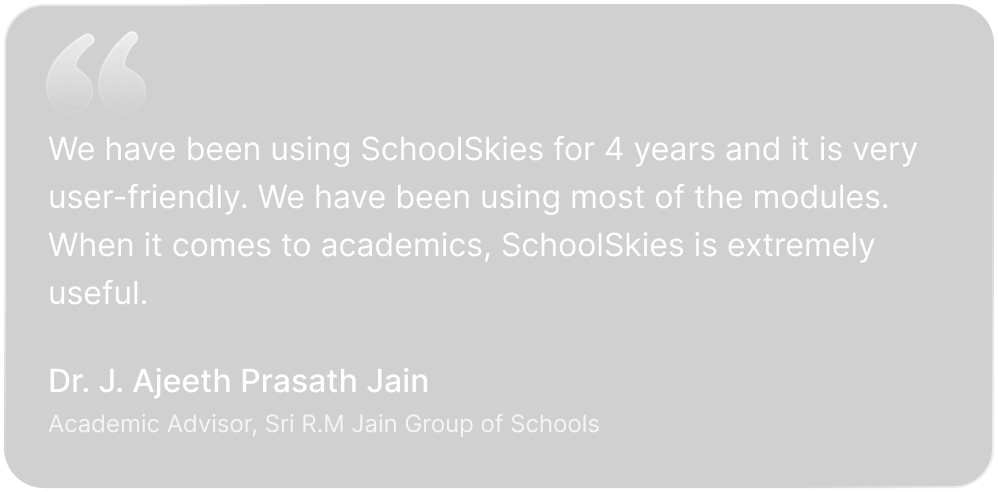Start Your Free
Trial Now


As education undergoes a digital revolution, School Enterprise Resource Planning (ERP) systems have become integral tools for administrators, revolutionizing the way educational institutions operate. The seamless integration of ERP brings a host of functionalities that enhance efficiency, communication, and decision-making. In this blog post, we delve into the roles and responsibilities of school administrators in the context of ERP integration, unlocking new dimensions of excellence within the educational ecosystem.
School administrators are tasked with strategically implementing ERP systems that align with the institution's goals. From selecting the right ERP solution to overseeing the integration process, administrators play a pivotal role in harnessing the full potential of technology to enhance school management.
Administrators are the custodians of the vast amounts of data generated by ERP systems. They establish data governance policies, ensuring data accuracy, security, and compliance with privacy regulations. Effective data management is key to informed decision-making.
ERP systems offer a range of customizable features to suit the unique needs of each educational institution. Administrators work closely with ERP providers to tailor the system to the school's requirements, optimizing workflows and ensuring a seamless user experience.
Given the sensitive nature of student and staff data, administrators prioritize the security and privacy of information stored within the ERP system. They implement robust security measures, conduct regular audits, and stay abreast of best practices to protect against potential cyber threats.
ERP systems streamline communication channels within the school community. Administrators are responsible for configuring communication modules, and ensuring seamless information flow between teachers, parents, students, and other stakeholders.
Administrators leverage the analytical capabilities of ERP systems to monitor and analyze key performance metrics. From student performance data to resource utilization, these insights inform strategic decisions and initiatives aimed at enhancing overall school performance.
ERP systems aid administrators in efficient budgeting and resource allocation. By analyzing financial data, administrators can make informed decisions on resource distribution, ensuring optimal utilization and cost-effectiveness.
In the digital ecosystem, schools often use multiple tools and platforms. Administrators are responsible for integrating the ERP system with other external systems, such as finance software, to create a cohesive and interconnected digital environment.
In the digital ecosystem, schools often use multiple tools and platforms. Administrators are responsible for integrating the ERP system with other external systems, such as finance software, to create a cohesive and interconnected digital environment.
ERP systems are not immune to occasional challenges or user queries. Administrators provide ongoing user support, troubleshoot issues, and collaborate with ERP providers to resolve any technical challenges promptly.
As schools embrace the digital age, the roles and responsibilities of administrators expand to encompass the strategic integration and management of ERP systems. In unveiling these responsibilities, we recognize the pivotal role administrators play in steering educational institutions toward a future where technology enhances efficiency, communication, and overall educational excellence. The seamless integration of ERP is not just a technological upgrade; it is a transformative journey that empowers administrators to pioneer excellence within the educational landscape.